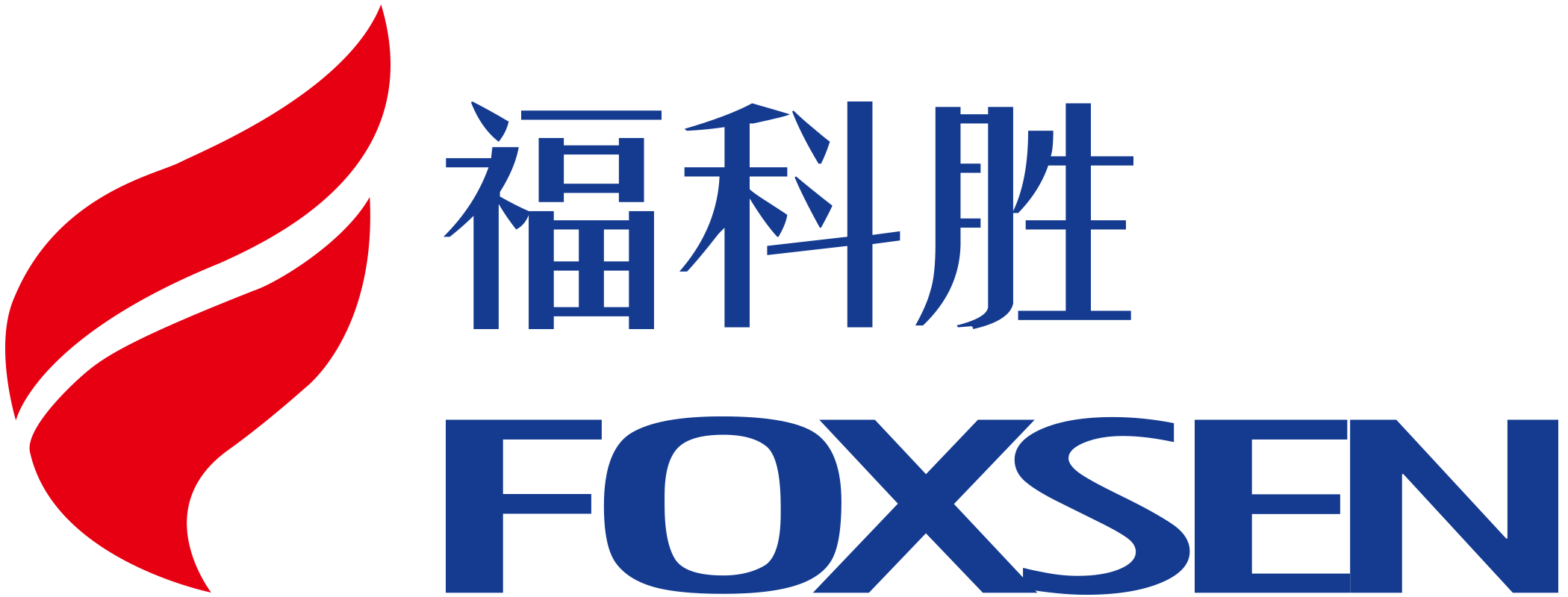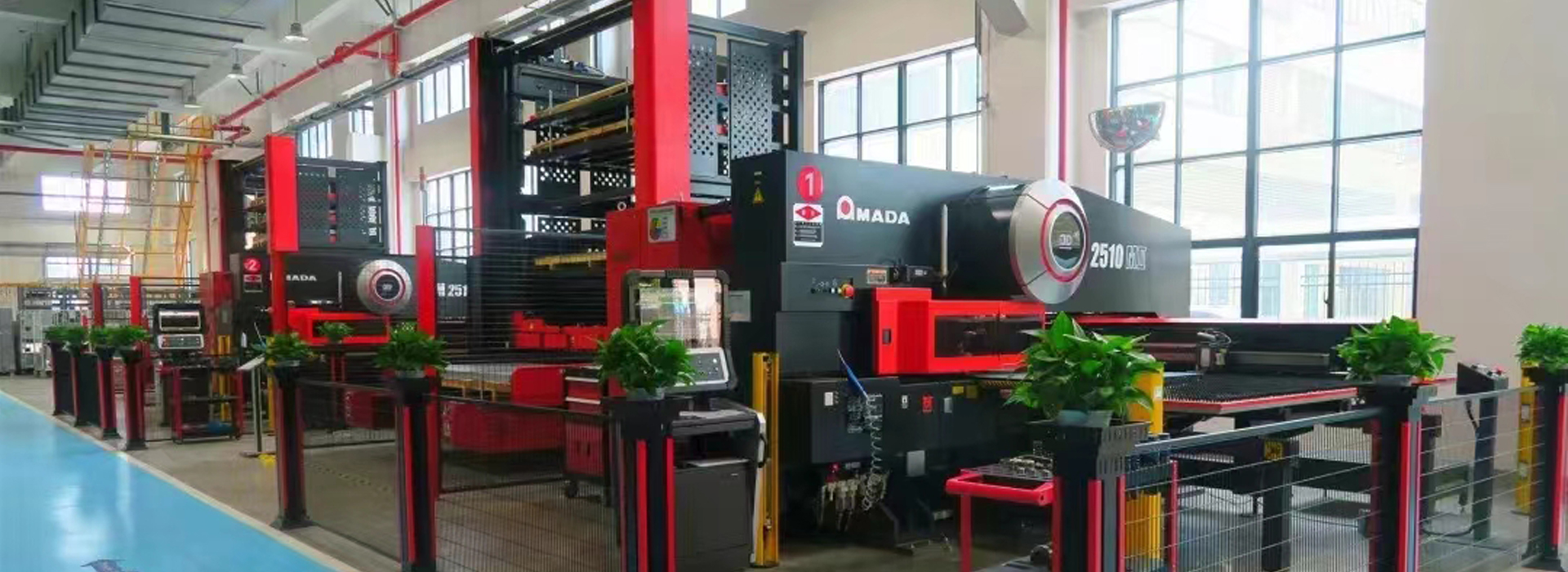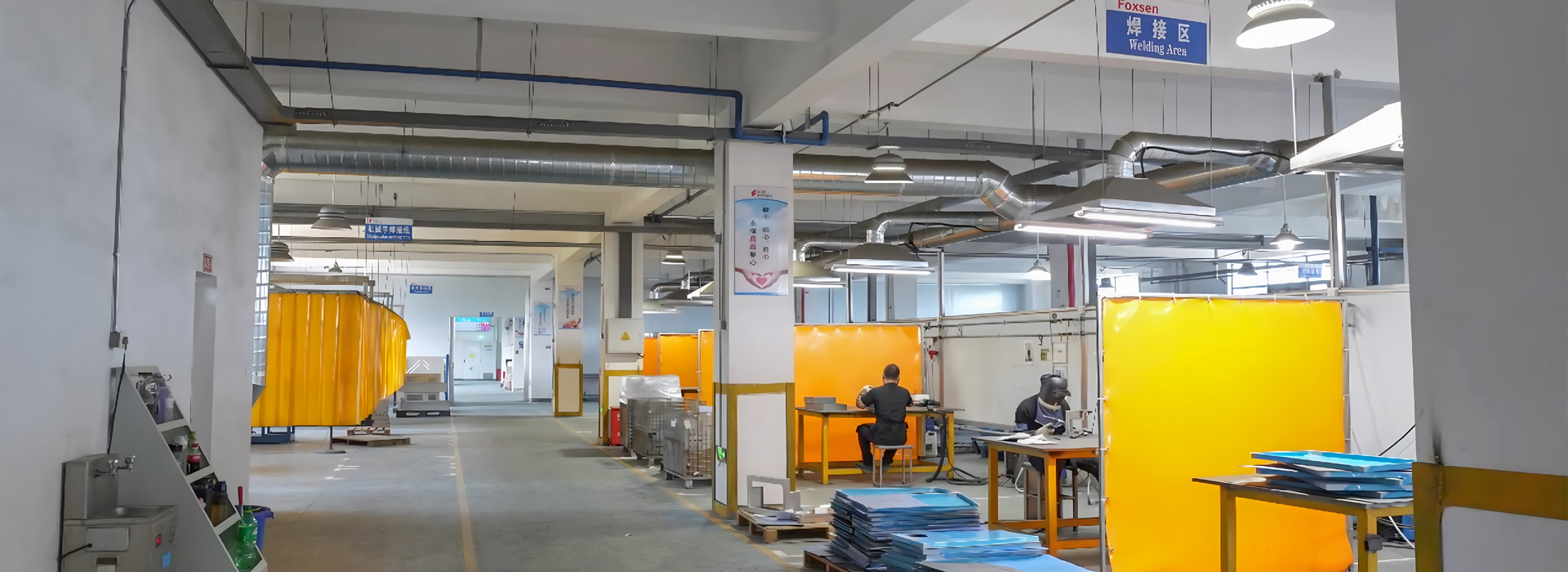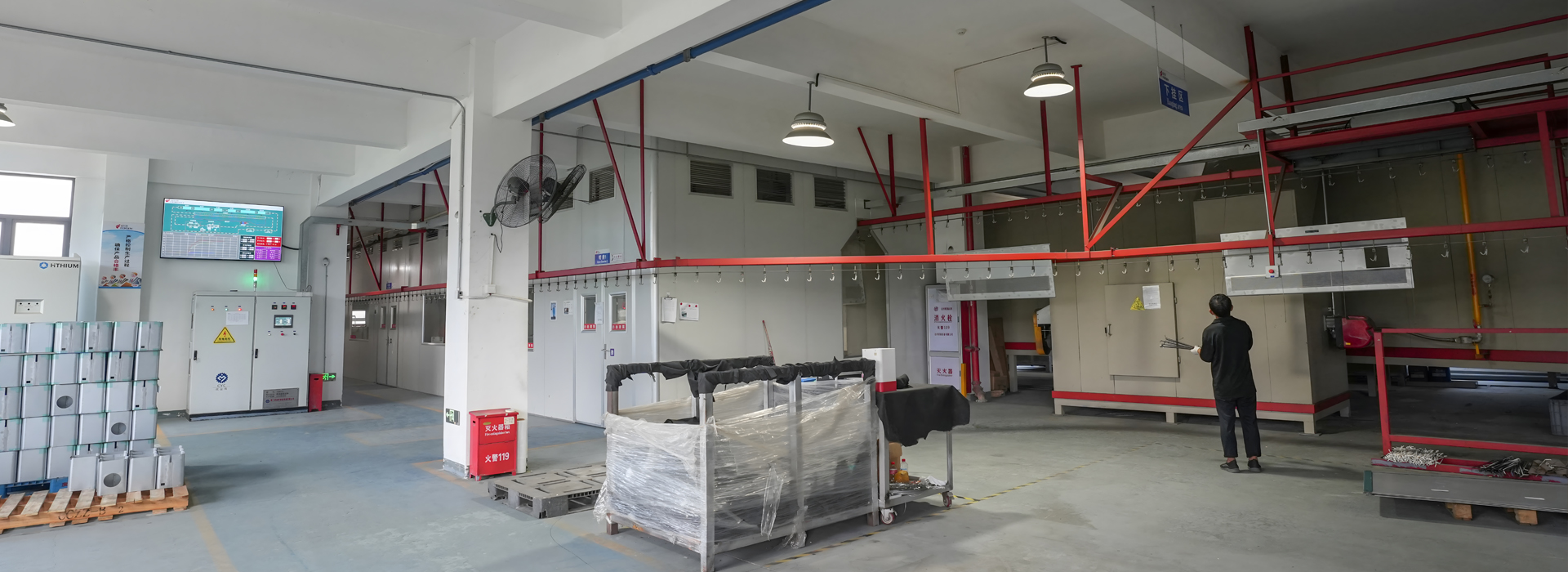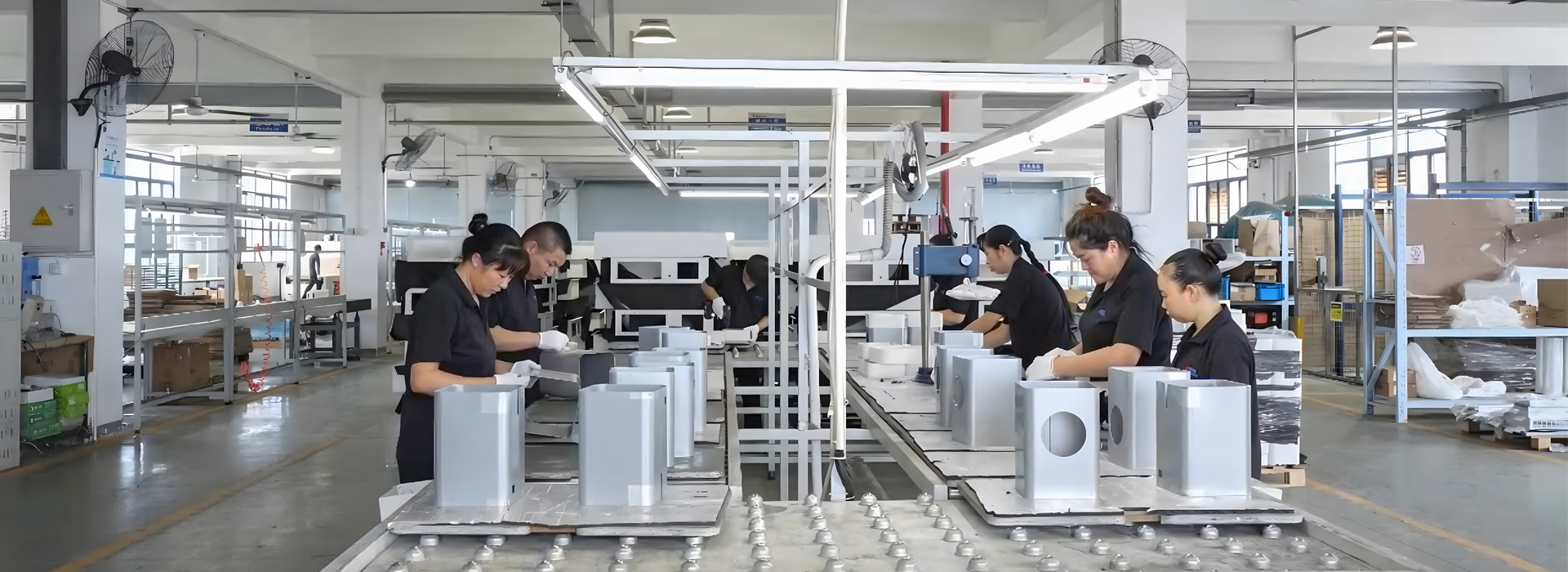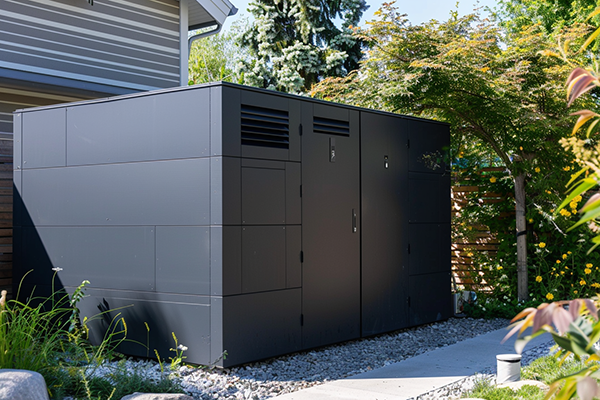
Sheet metal industrial machine enclosures serve as protective casings crafted from thin metal sheets. They shield machinery and electronic components from environmental hazards while enhancing operational efficiency. You’ll find these enclosures indispensable in industries like manufacturing, healthcare, energy, and telecommunications, where safety and durability are paramount.
The global sheet metal fabrication market reflects their growing importance. It was valued at USD 18.93 Billion in 2024 and is expected to reach USD 25.51 Billion by 2032, growing at a CAGR of 3.8%. This surge highlights their effectiveness across diverse applications.
Benefits include:
Reduced downtime due to better protection.
Improved safety for operators and equipment.
Enhanced productivity in industrial settings.
Key Takeaways
Sheet metal covers keep machines safe from dust and water. They help machines work better and need fewer repairs.
These covers make workplaces safer by blocking dangerous parts of machines. They also keep delicate equipment from getting damaged.
You can customize these covers to fit different industrial needs. This makes them work better with specific machines.
Strong covers lower the time machines are out of use. They also cut down on repair costs, saving money over time.
Adding vents and access panels makes fixing machines easier. This helps machines keep running with fewer interruptions.
Protection and Durability of Sheet Metal Industrial Machine Enclosures
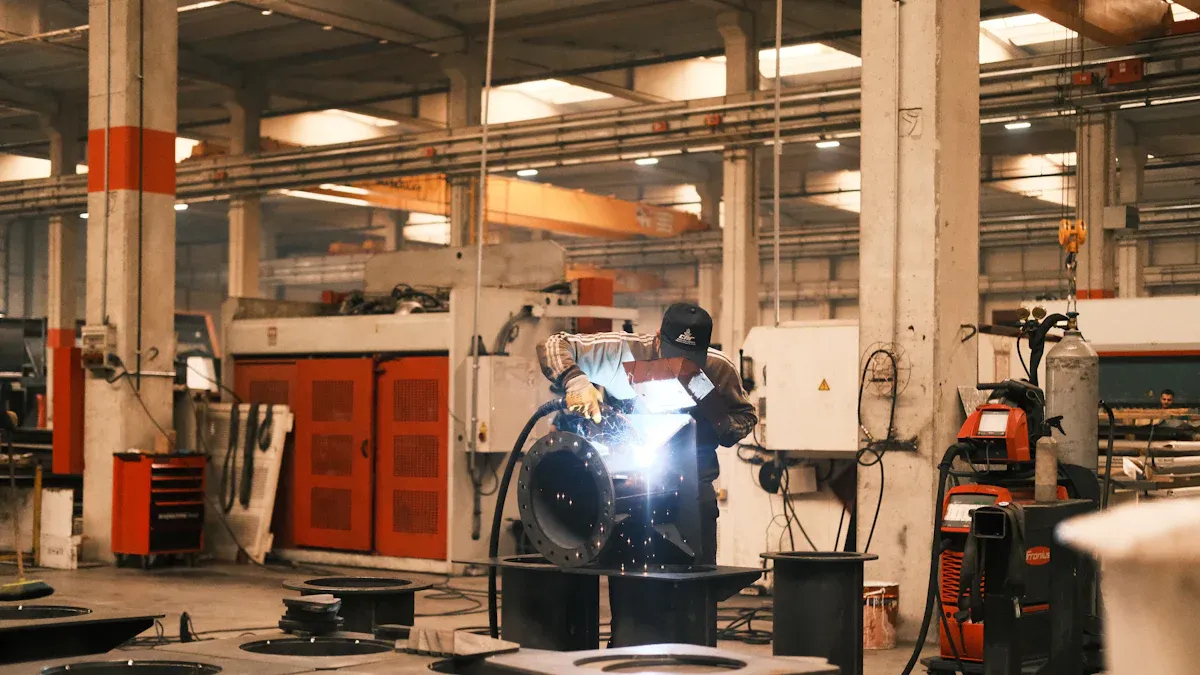
Shielding machinery from environmental factors like dust, moisture, and pollutants
You rely on machinery to perform efficiently, but environmental factors like dust, moisture, and pollutants can cause significant damage. Sheet metal industrial machine enclosures act as a barrier, keeping these harmful elements away from your equipment. For example, in manufacturing plants, dust particles can accumulate on sensitive components, leading to malfunctions. By using these enclosures, you ensure that your machinery operates in a clean and controlled environment. This protection not only improves performance but also reduces the need for frequent repairs.
Enhancing safety for operators and sensitive equipment
Safety is a top priority in any industrial setting. Sheet metal industrial machine enclosures enhance safety by creating a physical shield between operators and potentially hazardous machinery. For instance, moving parts in machines can pose risks if left exposed. These enclosures prevent accidental contact, reducing the likelihood of injuries. Additionally, they protect sensitive equipment from external impacts, ensuring that delicate components remain intact. With these enclosures in place, you create a safer workspace while maintaining the integrity of your machinery.
Tip: Always choose enclosures with proper insulation and grounding to minimize electrical hazards.
Prolonging the lifespan of machinery through robust protection
Investing in machinery is a significant expense, and you want it to last as long as possible. Sheet metal industrial machine enclosures provide robust protection, extending the lifespan of your equipment. They shield machinery from wear and tear caused by environmental exposure and operational stress. For example, in outdoor applications, these enclosures protect against rain, UV rays, and temperature fluctuations. By reducing the impact of these factors, you minimize the risk of premature failure. This durability ensures that your machinery remains reliable and cost-effective over time.
Structural Components and Support
Providing a stable framework for industrial machinery
Sheet metal enclosures play a vital role in providing a stable framework for your industrial machinery. They act as the backbone, ensuring that equipment remains securely housed and operates without unnecessary vibrations or movement. This stability is especially important in environments where precision is critical, such as CNC machining or robotics. A well-designed enclosure minimizes the risk of misalignment or operational errors, helping you maintain consistent performance.
To enhance structural support, engineers often test new designs under extreme conditions. For instance:
Metabraces undergo seismic load tests to ensure they can absorb shocks effectively.
Impact and penetration tests evaluate the performance of structural components in demanding industrial settings.
These rigorous evaluations guarantee that your machinery operates reliably, even in challenging environments.
Supporting heavy-duty equipment in demanding environments
Heavy-duty equipment requires enclosures that can withstand intense operational demands. Sheet metal enclosures excel in this area by offering robust support and protection. Whether you're working in mining, energy, or manufacturing, these enclosures handle the weight and stress of large machinery with ease. They also resist deformation, ensuring that your equipment remains functional under pressure.
Innovative solutions like HVTS® cladding enhance the durability of enclosures. This technology maximizes the adhesion of protective layers, reducing maintenance needs and preventing unplanned production interruptions. By choosing enclosures with advanced features, you can ensure your equipment stays operational in even the harshest conditions.
Ensuring reliability and stability during operations
Reliability and stability are essential for uninterrupted operations. Sheet metal enclosures contribute to this by maintaining the structural integrity of your machinery. Specialized systems, such as the DSA module, monitor tilt and acceleration in large structures. These sensors collect low-frequency data to assess stability, ensuring that your equipment remains secure during use.
By investing in high-quality enclosures, you reduce the risk of operational disruptions. This reliability translates to fewer delays, higher productivity, and greater peace of mind for you and your team.
Customization and Versatility in Design
Tailoring enclosures to meet specific industrial requirements
Every industry has unique needs, and sheet metal enclosures offer the flexibility to meet them. You can customize these enclosures to fit specific dimensions, shapes, and configurations. For example, in the automotive sector, enclosures can be designed to house engine control units or battery systems. In contrast, manufacturing facilities may require enclosures tailored for CNC machines or robotic arms.
Tip: Collaborate with design engineers to ensure the enclosure meets your exact specifications. This approach guarantees optimal performance and compatibility with your equipment.
Customization also extends to material selection. You can choose from options like stainless steel, aluminum, or galvanized steel based on your operational environment. Each material offers distinct advantages, such as corrosion resistance or lightweight properties, ensuring the enclosure aligns with your industrial demands.
Incorporating features like ventilation, insulation, and access panels
Sheet metal enclosures can include a variety of features to enhance functionality. Ventilation systems, for instance, help regulate temperature and prevent overheating in equipment like power generators or servers. Insulation can be added to reduce noise levels or protect sensitive components from extreme temperatures.
Access panels are another valuable feature. These panels allow you to perform maintenance or repairs without dismantling the entire enclosure. This design not only saves time but also minimizes operational disruptions.
Example: A telecommunications company might use enclosures with built-in cable management systems and removable panels for easy access to routers and circuit boards.
Adapting designs for diverse industries, including automotive and aerospace
The versatility of sheet metal enclosures makes them suitable for a wide range of industries. In the automotive sector, they protect electronic control units from vibrations and heat. Aerospace applications often require lightweight yet durable enclosures to house avionics systems.
You can also find these enclosures in renewable energy, where they shield solar inverters or wind turbine components from harsh weather. Their adaptability ensures they meet the demands of even the most specialized industries.
Key takeaway: By leveraging the customization options available, you can ensure your enclosures are both functional and industry-specific.
Industry-Specific Applications of Sheet Metal Industrial Machine Enclosures
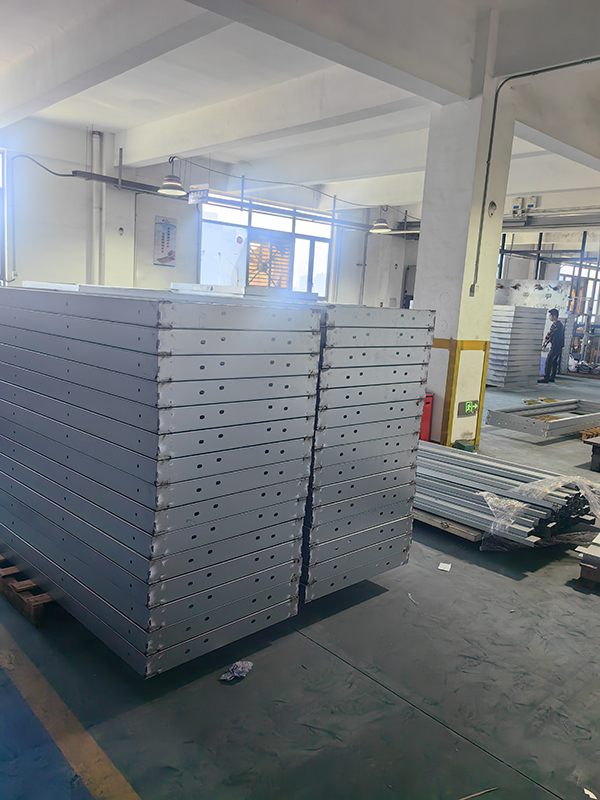
Manufacturing: Protecting CNC machines, robotics, and automation systems
In manufacturing, precision and efficiency are critical. You rely on CNC machines, robotics, and automation systems to maintain these standards. However, these advanced technologies require protection from environmental hazards and operational wear. Sheet metal industrial machine enclosures provide this essential safeguard. They shield sensitive components from dust, debris, and temperature fluctuations, ensuring uninterrupted performance.
The demand for these enclosures continues to grow alongside advancements in manufacturing technology. The global sheet metal fabrication services market, valued at approximately USD 15 billion in 2023, is projected to reach around USD 25 billion by 2032. This growth, at a compound annual rate of 5.5%, highlights the increasing reliance on durable and protective solutions like sheet metal enclosures.
By using these enclosures, you not only protect your equipment but also enhance workplace safety. For instance, enclosures prevent accidental contact with moving parts in robotic systems, reducing the risk of injuries. Additionally, they contribute to noise reduction, creating a more comfortable environment for operators. With their robust design and adaptability, these enclosures are indispensable in modern manufacturing.
Healthcare: Housing sensitive medical devices and diagnostic equipment
In healthcare, precision and reliability are non-negotiable. Medical devices and diagnostic equipment must operate flawlessly to ensure accurate results and patient safety. Sheet metal industrial machine enclosures play a vital role in achieving this. They protect sensitive instruments like MRI machines, CT scanners, and laboratory analyzers from external factors such as electromagnetic interference (EMI), dust, and moisture.
You can also customize these enclosures to meet the stringent requirements of healthcare environments. For example, enclosures designed for medical devices often include features like antimicrobial coatings to prevent contamination. Ventilation systems ensure that equipment remains cool during operation, while access panels allow for quick maintenance without disrupting workflows.
Moreover, these enclosures enhance the durability of medical equipment. By shielding devices from physical damage and environmental stress, they extend their lifespan and reduce the need for frequent repairs. This reliability is crucial in healthcare settings, where downtime can have serious consequences. With their tailored designs and protective capabilities, sheet metal enclosures are a cornerstone of modern medical technology.
Energy: Enclosing power generation systems and electrical components
The energy sector demands equipment that can withstand harsh conditions and operate reliably over long periods. Power generation systems and electrical components, such as transformers and inverters, are often exposed to extreme temperatures, moisture, and corrosive environments. Sheet metal industrial machine enclosures provide the protection these systems need to function efficiently.
For instance, in renewable energy applications, enclosures shield solar inverters from rain, dust, and UV radiation. In wind energy, they protect turbine control systems from high winds and salt spray in coastal areas. These enclosures also play a critical role in thermal management, incorporating ventilation and insulation to prevent overheating.
You can rely on these enclosures to enhance the safety and longevity of your energy systems. They prevent unauthorized access to high-voltage components, reducing the risk of accidents. Additionally, their robust construction ensures that equipment remains operational even in the most demanding environments. By investing in high-quality enclosures, you contribute to the reliability and sustainability of energy infrastructure.
Telecommunications: Safeguarding routers, circuit boards, and communication devices
In the telecommunications industry, the reliability of equipment is critical. You depend on routers, circuit boards, and communication devices to maintain seamless connectivity. However, these components are often vulnerable to environmental factors like dust, moisture, and electromagnetic interference (EMI). Sheet metal industrial machine enclosures provide the protection needed to ensure uninterrupted performance.
These enclosures shield sensitive equipment from external damage. For example, they prevent dust from accumulating on circuit boards, which could lead to overheating or short circuits. They also block EMI, which can disrupt the functionality of communication devices. By using these enclosures, you enhance the durability and efficiency of your telecommunications infrastructure.
Customization plays a significant role in this industry. You can design enclosures with features like cable management systems, ventilation panels, and access doors. These additions simplify maintenance and improve operational efficiency. For instance, a well-ventilated enclosure prevents routers from overheating, while access doors allow technicians to perform repairs without dismantling the entire setup.
Telecommunications equipment often operates in diverse environments, from indoor data centers to outdoor cell towers. Sheet metal industrial machine enclosures adapt to these conditions. Outdoor enclosures, for example, are built to withstand extreme weather, including rain, snow, and high temperatures. This adaptability ensures that your equipment remains functional, regardless of its location.
Pro Tip: When selecting enclosures for telecommunications, prioritize those with EMI shielding and weather-resistant coatings. These features enhance protection and extend the lifespan of your equipment.
Mining: Housing critical components like engines and transmissions
Mining operations demand robust and reliable equipment. You rely on engines, transmissions, and other critical components to power heavy machinery in challenging environments. These components face constant exposure to dust, debris, and vibrations, which can lead to wear and tear. Sheet metal industrial machine enclosures offer the protection needed to keep your equipment running smoothly.
These enclosures act as a barrier against harsh conditions. They prevent dust and debris from entering engines and transmissions, reducing the risk of mechanical failures. They also dampen vibrations, which can cause misalignments or damage over time. By housing your equipment in durable enclosures, you minimize downtime and improve operational efficiency.
Mining environments often involve extreme temperatures and corrosive elements. Sheet metal industrial machine enclosures are designed to withstand these challenges. For example, enclosures made from galvanized steel resist corrosion, while those with thermal insulation protect components from overheating. These features ensure that your equipment remains operational, even in the most demanding conditions.
You can also customize enclosures to meet the specific needs of your mining operations. For instance, enclosures with reinforced frames provide additional support for heavy machinery. Ventilation systems help regulate temperature, while access panels simplify maintenance tasks. These tailored solutions enhance the performance and longevity of your equipment.
Note: Regularly inspect your enclosures for signs of wear or damage. Prompt maintenance ensures that your equipment remains protected and operational.
Maintenance and Cost Efficiency
Reducing wear and tear on machinery through protective enclosures
You can significantly reduce wear and tear on your machinery by using sheet metal enclosures. These enclosures act as a shield against environmental factors like dust, moisture, and pollutants. Sensitive equipment remains protected, even in harsh industrial environments. For example, enclosures prevent dust from settling on moving parts, which can lead to mechanical failures.
Custom designs enhance operational efficiency by safeguarding critical components.
Durable materials resist corrosion and physical damage, ensuring long-term reliability.
Protection from environmental stress helps maintain optimal performance.
By investing in high-quality enclosures, you extend the lifespan of your machinery and reduce the frequency of repairs. This proactive approach saves you time and resources while keeping your equipment in peak condition.
Tip: Regularly inspect enclosures for signs of wear to ensure continuous protection.
Simplifying maintenance and repair processes with accessible designs
Accessible designs simplify maintenance and repair tasks. Sheet metal enclosures often include features like removable panels and hinged doors. These additions allow you to reach internal components quickly without dismantling the entire structure.
For instance, enclosures with access panels make it easier to replace worn-out parts or perform routine inspections. Ventilation systems also contribute to maintenance efficiency by preventing overheating, which can damage equipment.
You can customize enclosures to match your operational needs. Features like cable management systems and modular designs streamline repair processes. This convenience minimizes disruptions and ensures your machinery remains operational.
Example: A manufacturing facility can benefit from enclosures with built-in access points for CNC machines, reducing downtime during maintenance.
Minimizing downtime and operational disruptions, leading to cost savings
Downtime can be costly, but sheet metal enclosures help you avoid it. Their robust construction protects machinery from damage, ensuring uninterrupted operations. Resistance to environmental factors like moisture and dust keeps equipment running smoothly.
Reduced risk of equipment failure leads to fewer operational disruptions.
Enhanced durability lowers maintenance costs over time.
Reliable performance boosts productivity and profitability.
By choosing enclosures designed for your industry, you optimize efficiency and reduce expenses. This investment pays off by keeping your operations on track and minimizing unexpected delays.
Key takeaway: Durable enclosures not only protect your machinery but also save you money by reducing downtime and repair costs.
Sheet metal industrial machine enclosures play a vital role in protecting machinery and ensuring its durability. You can rely on these enclosures to shield equipment from environmental hazards, enhance safety, and extend operational life. Their customizable designs allow you to meet specific industrial needs, making them a versatile solution across sectors like manufacturing, healthcare, and energy. By investing in these enclosures, you ensure your machinery operates efficiently and remains reliable over time. Their adaptability and value make them indispensable in modern industries.
FAQ
What are the key benefits of using sheet metal machine enclosures?
Sheet metal enclosures protect machinery from environmental hazards, enhance operator safety, and extend equipment lifespan. They also simplify maintenance and reduce downtime, saving costs. Their customizable designs adapt to specific industrial needs, making them versatile across sectors like manufacturing, healthcare, and energy.
How can you customize sheet metal enclosures for your industry?
You can tailor enclosures by choosing materials like stainless steel or aluminum, adding features like ventilation, insulation, or access panels, and designing them to fit specific equipment dimensions. Collaborating with engineers ensures the enclosure meets your operational requirements.
Are sheet metal enclosures suitable for outdoor applications?
Yes, they are ideal for outdoor use. Durable materials like galvanized steel resist corrosion, while weatherproof coatings protect against rain, UV rays, and temperature changes. Ventilation systems prevent overheating, ensuring reliable performance in harsh environments.
How do sheet metal enclosures improve maintenance efficiency?
Accessible designs, such as removable panels and hinged doors, simplify maintenance tasks. You can quickly inspect or repair components without dismantling the enclosure. Features like cable management systems and modular designs further streamline repair processes, minimizing downtime.
Why are sheet metal enclosures important for safety?
They create a physical barrier between operators and hazardous machinery, reducing injury risks. Insulated designs minimize electrical hazards, while robust construction protects sensitive equipment from external impacts. These features ensure a safer workspace and reliable equipment operation.
